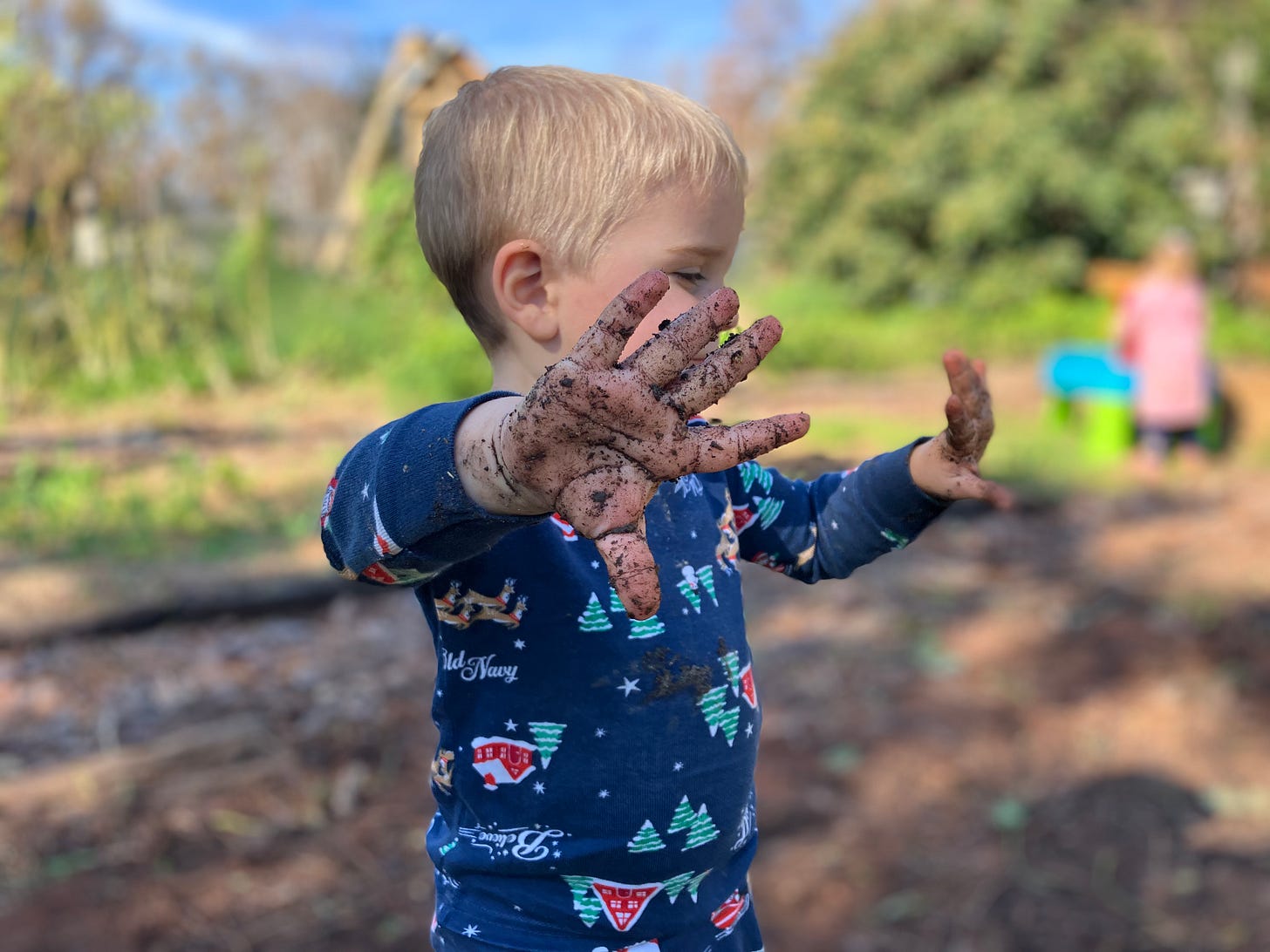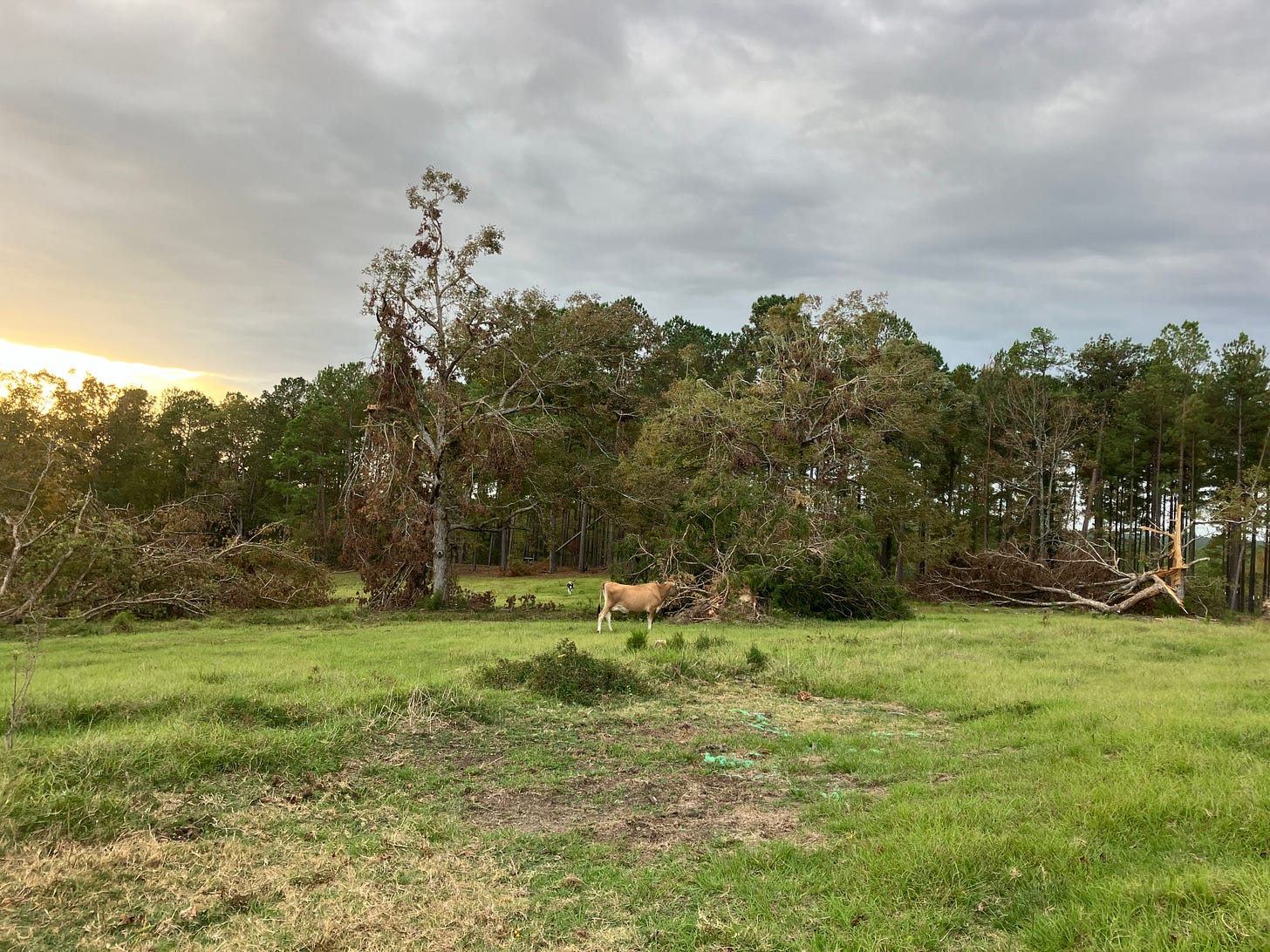After Kirk
Memories and time and healing in no particular order
Our little boy was born on November 4th. He is our third baby. Now that the trauma has worn off and we are more comfortable in the world, I can look at him and have moments of forgetful joy. He is a beautiful baby and I am so blessed to be his caretaker. The days are busy but at night it is just the two of us, and I tell him these things.
Lately we have also had fresh in our minds many of our loved ones who have passed away, as we remember their birthdays and as the holidays approach. I came upon my grandmother’s obituary, written by my mother, from last November, and these words made me smile:
Her memories were good, even the hard ones were spoken of as “Well, we made it.”
When all is said and done in my mind and body postpartum, I know this will be the end of the matter. We have a new person in our membership, and as he grows the memory of my own pain will shrink and perhaps even disappear entirely, eclipsed by his life. I believe time does heal because time inevitably marches on with sunshine and rain and planting and harvest and laughter and new tears and perspective. Time teaches us to cut through the crap of what we expected. It teaches us to be thankful.
As I mature as a woman, my individualism is crucified. I am for these children who need me and my life is tied up in this family I love. I know this world is not my home, while at the same time acknowledging with an honest fragile heart that it is.
My friend, Dr. Keith, passed away this week at ninety-five years old and this is a piece I wrote down many years ago about him. I am glad for the words and memories I have written down over the years, for being in the company of the elderly is like getting Time in a concentrated dose.
September 2019
There once was a little boy whose father was busy and whose mother was ill, and so he was sent to live with his grandparents. The first Sunday, they found him sitting at the top of the steps, looking out the window there.
“It’s time to get dressed for church, Mali,” they said.
“No.”
“Well, yes. Yes, Mali, that’s what we do.”
Pointing out the window, he said, "But this is not my world.”
The old man told me this story in Dairy Queen. He pulled it from his collection of funnies, of kids say the darnedest things, and yet before the last words were out, they quarried him deep, as if it wasn’t his familiar story, as if he himself was that little boy all the time, trying to make them understand how it was. His wife had just died. Perhaps it had taken every bit of courage he had to walk out his door that morning. Perhaps he had laid long in bed and remembered all the days he had known, and considered all the strange new things he would face alone, and felt at a loss to say just what he was thinking about it all, until right then.
He looked down. Perhaps his cold hands reminded him that if it wasn't his world, at least it was his butterfinger blizzard. He resurfaced triumphantly as men do, just as he did after his first dive as a boy, when he went down much deeper than he imagined and desperately pulling his weight toward the light, he rose with a swoop of the head that peaked his hair and a look that crowed. In the same way, the old man looked up brave through his watery eyes and began another story that was pure comedy, about a different little boy who gathered all the car keys at the family reunion and threw them into the muddy lake.
Years ago, a friend sent me a letter and asked me not to share it. I read it just once, quickly, and then went out into the cold with a box of matches. I lit it in my hand and dropped the last little fiery piece on the stone path, burning myself a little. It was a windy day and the ashes swirled and scattered.
In spending time with elderly people, I have heard many stories that were not mine to tell. They say for a writer all the world is your raw material, but this isn’t true, not really. Not for me. This is like the man who was fined for spreading four o’clock seeds on the highway. It wasn’t his garden. I’ve known all along that I would need to live well to write well, but I didn’t realize that writing well would be such a minor side effect of living well, and how many countless letters would need to be burned up and blown away.
I have written mostly to cheat death. I have examined this motive, considered my ways and continued on, like a sinner. I excuse myself because it is not my death of which I speak, but the reader will see this is not exactly true. I have written what I could not let go of. I realize that my stories are as common as the ones that fill your own days, maybe more so. You do not come here expecting to be wildly entertained. You enter only as you would a neighbor’s house, understanding that you will find it much like your own. And yet, you never know.
He gets the key from under the post-cap. He opens the familiar door. There are crumbs and coupons on the kitchen table. There is a puddle of pears on the counter. There are seven blinking messages, a mystery novel face down on the desk and half a cobbler in the refrigerator. Her delicates are in the wash. A wadded up kleenex is in her rocker. Sixty-six years they were married. He climbs the stairs and looks out the window. It’s time for the six o’clock news. But this is not his world.






"I’ve known all along that I would need to live well to write well, but I didn’t realize that writing well would be such a minor side effect of living well..."
That's a great observation - well, two great observations. And I'm so glad that you have been able to live well and wise enough to understand something of what it actually means to live well.